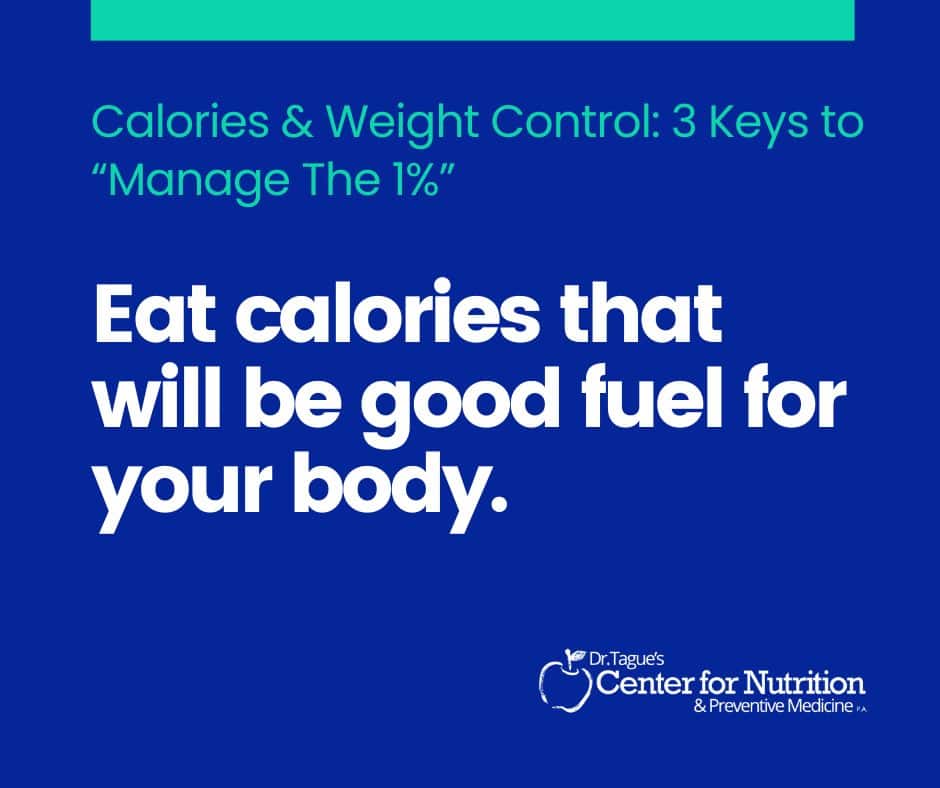Think about it… calories are the ONLY source of power for humans. You see, energy is stored in food as “calories”. When calories are consumed, they energize human metabolism and human function for all sorts of activities. Whether building muscle and bone, thinking thoughts, growing hair, fighting disease-causing viruses and bacteria, or running a marathon, only calories can meet our energy needs. Calories are mandatory for life, health, and productivity.
So why have we become obsessed with avoiding calories, our only source of energy? Look at common efforts to avoid calories:
- Low-calorie snacks are priced at a premium for FEWER calories.
- Dieters are obsessed with COUNTING (and avoiding) calories.
- Some communities now LIMIT portion sizes of beverages and snacks.
- Restaurants give calorie info so we can choose FEWER calories.
- Food labels list calories, so we can AVOID calories.
Why would such a necessary, good and essential thing as calories and “energy” become the source of such controversy and concern?
The answer, of course, lies in our escalating epidemic of the calorie storage disease of obesity. Calories, that are supposed to be a source of energy, have become a source of unwanted weight gain for the vast majority of Americans! However, the theoretical strategy to completely avoid weight gain is quite simple.
Every person can avoid weight gain if they will just “manage the 1%” (of calories that is).
Let me explain…
Fact # 1. Women, since the 1970’s, have gained over 1 lb per year on average!
The typical woman in the 1970’s weighed 135 lbs at age 25. Now (30 years later) that same woman, currently age 55, weighs 170 lbs, and has gained 35 lbs. Yikes!!! What happened? It’s no wonder women miss their old clothes and their old way of life! (Men, our situation is not much better, so no getting arrogant!)
Fact #2. An imbalance of just 13 extra calories per day, less than a 1% increase, causes over 1 pound of fat gain per year!
The average adult uses about 2,100 calories to function each day. The obesity epidemic is the result of an extra 1% or 13 calories per day EXTRA per person per year over 30 years. (JAMA, Jan 6, 2010. Vol 303, No. 1, p. 65) Note: Adding 13 calories to your day’s diet is simple, just eat an extra ¼ of a small cookie or just 1 potato chip. But what if ‘I can’t eat just one’ you may ask? Just keep reading…
So, if you add 1 chip per day this year, then add another 1 potato chip per day the next year and so on, the effect can be staggering. This subtle behavior change can have a devastating impact over time! And yes, our diets always tend to “creep” upward in portion sizes and quantities! We tend to eat a little more year after year… and sometimes we eat A LOT more… if that’s the case, the situation can get scary!
Fact #3. There are 3 keys you absolutely MUST control to “manage the 1%”.
So why don’t people just “manage the 1%” calorie imbalance each day? After all, controlling an excess of 13 calories per day can’t be that hard, can it? Surely we wouldn’t even notice if we cut out 13 calories each day, right? The truth is, everyone can unintentionally be a victim of “the calorie storage disease” and fail to “manage the 1%” for one or more of the following 3 reasons:
Reason #1: Appetite – Appetite includes all the motivations to put calories in your mouth. Stomach “growling” hunger is obvious. The tempting smell of fresh-baked chocolate chip cookies is another. TV commercials, candy bars at the check out counter, or watching a friend eat a favorite snack can all be temptations. Americans “love” their food for all sorts of reasons. Appetite, including all sorts of cravings and desires for food and drinks, (unless managed aggressively) can and often does sabotage dieters.
Reason #2: Metabolism – There are many, many factors that influence metabolism and calorie burning BESIDES your activity level. Age, hormone imbalances, some medications, nutrient deficiencies, stress, certain diseases, and lack of sleep all have an impact, just to name a few.
Reason #3: Nutrition – We now know that not all calories are created equal. The quantity AND quality of your nutritional intake is a KEY to your weight gain tendency. You’ve heard of “empty calories”, which can taste good, but do very little to suppress an excessive appetite or food cravings and very little to promote health. Choose high quality, nutritious foods and high quality nutritional supplements for the best chance of reducing your appetite over time.
If you are struggling with the impact of a 1% daily calorie excess (or more) over time (perhaps with many years of excess calories stored), please think through how the 3 reasons above have played a role. There are sound, medically-based, successful approaches and trained professionals that can help you manage appetite, metabolism, and nutrition factors to empower you for real, lasting success. Be encouraged, be intentional, and get back in control of your weight destiny!
And remember, Optimum Health is ALWAYS worth the effort.
For Optimum Health,
Rick Tague, M.D., M.P.H.
P.S. For more information, contact us to schedule a free no-obligation consultation.


